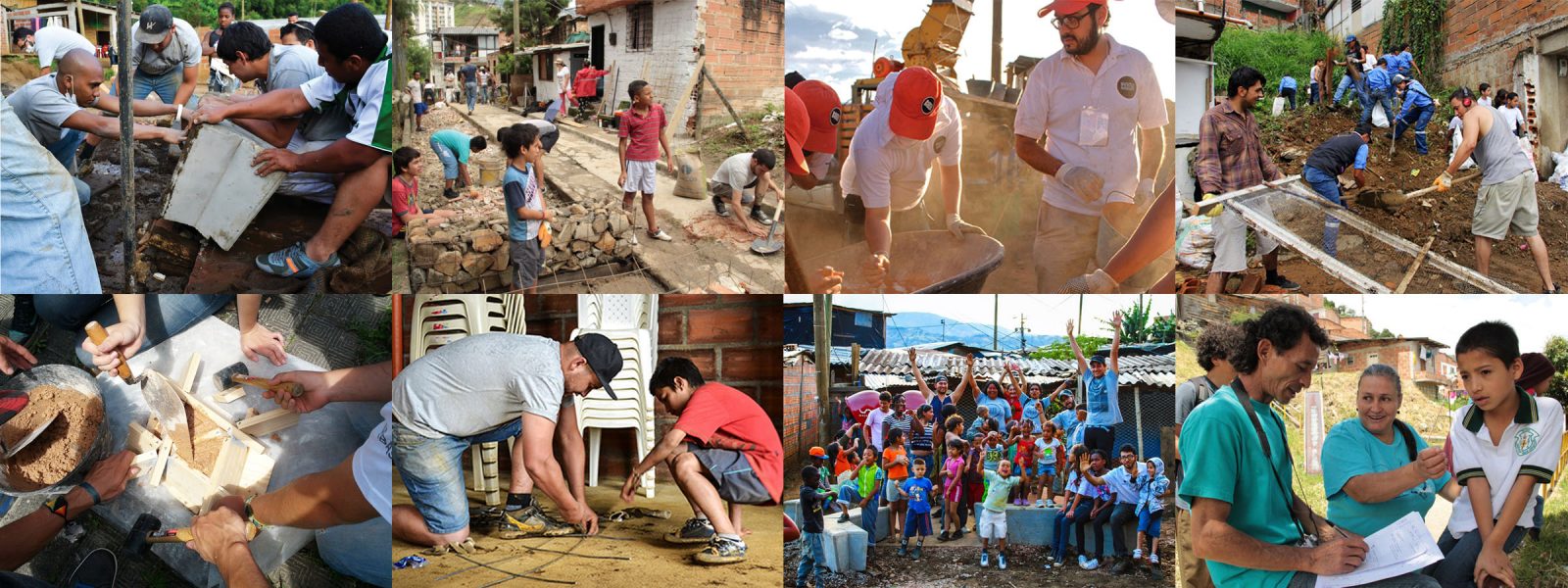What is Insitu?
Insitu is an initiative founded by Blokcad Lab and uAbureau in 2011 to implement projects that investigate the informal development of cities, its non-consolidated urban spaces and auto-construction processes. Its central objective is to explore how the ecological and the social environments of the City can be merged to create new and unforeseen landscapes.
Through a series of ongoing workshops, lectures and events, the program is directed to students, professionals and communities working in art, architecture, design and its related fields.
Insitu is structured around a social and technological platform for knowledge exchange and collaboration, between neighbourhoods and communities all over the world. Working with academic institutions, private industry, community groups, and designers from a wide-cross section of disciplines, we aim to create intelligent relationships between the inhabitants, consumers and producers of our cities.
Our Story
It all started in Barcelona, 2010. Fabio Lopez and Nicholas Waissbluth were completing their master’s degree at Institute for Advanced Architecture of Catalonia (IaaC), together with a large IaaC team co-directed by James Brazil as the construction lead, they built the prototype Fablab house, a self sufficient solar pavilion. The following summer, Rafael Machado met James and Fabio during an IaaC Summer School where they built Fablab prototypes for the slums of Caracas – upcycling waste from the Fablab house project. From there, the first thing that emerged was a great friendship among its members that had yet materialized in a specific project, but was formed around a passion for the hands-on design, fabrication and construction of full scale prototypes.
In the following year James visits Colombia and works with Fabio to collaborate with the company Blokcadlab, during those 2 months touring the country where it’s founder Bernardo first came up with the idea of concrete casting construction debris and demolition waste. Upon witnessing the vast amounts of debris and waste that were disposed in public spaces adjacent to construction sites and informal neighbourhoods, we devised an idea to promote the social impact of this innovative construction material. We began working with communities to reclaim and upcycle construction and other types of waste into public space design-build interventions, all work conducted on site or INSITU.
We activated these interventions through workshops in collaboration with local universities in Medellin, Colombia in 2012 and 2013. Fabio, James, Nic and Rafael worked alongside one particular informal community in Manantiales de Paz to consolidate their central meeting plaza with cast concrete landscape elements and ludic installations. This first INSITU project won the team the SXSW Eco: Place by Design – Community Impact award. Later in 2013, Medellin’s innovation and business administration, Ruta N, invites us to to make public space transformations across the entire city (16 Communas & 5 Corregimientos) of Medellín in 3 months. We grew from a team of 4 to a team of over 100 to execute a somewhat impossible project, but testament to the adaptable and flexible working methodology involving the participation and leadership of local community groups, we successfully completed the project. The city wide project manifested an innovative urban development paradigm, providing a platform for Ruta N to launch their community based Innovation Festival. In 2014, we continued the administration of the project, closing 12 months of over 25 projects and together Fabio, James, Nic and Rafael co-direct and founded the INSITU-Global Foundation to continue the work.
We have made life-long friends with those who have passed through our projects and in some cases they have matured to become strategic alliances of and between various organisations across 4 continents to continue the work of INSITU. We are currently continuing to make impact projects in Venezuela, Mexico, Colombia and Salvador. We have been winners of many awards such as the Quito Biennial together with other collectives, and our work has participated in exhibitions such as the Venice Biennale of Architecture – Venezuela Pavilion. At the end of the day, we will continue to roll up our sleeves and get our hands dirty championing innovative city development and transforming communities INSITU.

